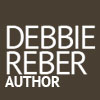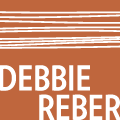 When I ask people writing a nonfiction book how their idea stands out from other similarly-themed books on the market, many reply that they haven’t explored competitive books too deeply, the thinking being that reading them might influence or muddle their own writing process.
When I ask people writing a nonfiction book how their idea stands out from other similarly-themed books on the market, many reply that they haven’t explored competitive books too deeply, the thinking being that reading them might influence or muddle their own writing process.
I totally get this line of thinking.
AND…I recommend doing it anyway. Especially if you have a goal of trying to traditionally publish your book. Here’s why.
Understanding the content, approach, and point of view of already-published books with similar themes as yours benefits you in several key ways:
1. It helps you understand how your concept is differentiated from what already exists:
- what your book will do differently
- how it will reach readers in a fresh way
- how it will fill a gap in the marketplace
This is all critical information to have at your disposal once you begin writing a book proposal where you’ll have to spell-out exactly how your book compares and relates to these other titles.
2. It helps you get even more clarity around the book you want to write. Once you dive into these competitive titles, you’ll likely realize very quickly that they approach the subject matter you’re tackling in a completely different way than you plan to. Which makes sense because, as I tell my clients all the time, no one else can write the book you are meant to write.
You don’t have to read every page of every competitive title, especially if you’re concerned that doing so will interfere with your own creative process. But I recommend you flip through them, read their table of contents, read reviews on Amazon, and get to know them well enough so you feel like you understand their POV.
Your goal at this point is to discover every book you can find available for purchase that has been written on your subject matter. Be exhaustive in your search by exploring:
- Barnes & Noble
- Independent bookstores
- Amazon (Pro Tip: Use the “People who bought this book also bought…” feature on Amazon to discover more relevant books)
- University bookstores
- Libraries
- Online web searches (for self-published books)
As you research, take notes on what works, what doesn’t, what is notable, what feels like a departure from your idea. Keep track of any lightbulbs that go off about your own project, which is likely to happen. Lastly, note the price and format of the book, again, so you’ll have that information at the ready when and if you decide to write a book proposal for traditional publishing.
In my next post, I’ll cover the hows and why of getting super clear on the audience for your book.

